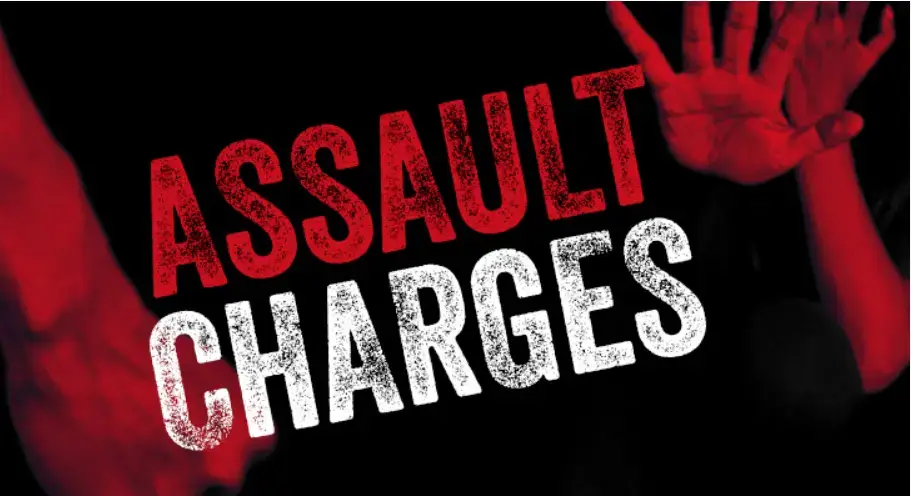Are You Worried About How to Fight Your Assault Charge? Here’s What To Do Now

Assault charges can always be a cause for concern. Even if you did not intend to hurt someone or put them in danger, you could still be convicted of assault in several states. Thankfully, with a lawyer’s help, you will be able to fight your assault charge and work out a plea deal that has you keeping your freedom and not being behind bars.
It still isn’t too late to fight your assault charge.
If you’ve been charged with assault, you may wonder how to defend yourself against these serious charges. You should contact a criminal defence attorney as soon as possible.
First, you must know there is always time to hire an attorney. When defending against a criminal charge, no set deadlines or time frames dictate when you need to act.
You can minimize the damage if you make it easy on the police and prosecutors.
The first thing to do is control the damage. If you have a criminal record, it will be harder for you to get specific jobs and opportunities and maintain your relationships with friends and family.
You can minimize the damage if you make it easy on the police and prosecutors. This means cooperating with them in their investigation and following their instructions if they ask you to do anything that makes sense for your case.
If they ask you to sign a written statement, ensure it’s accurate and complete. Don’t lie or exaggerate anything because they’ll know when they find out what happened from other evidence or witnesses. They might even use that against you in court.
It’s always possible to hire an attorney.
Call a lawyer. If you want to fight your case, you must hire an attorney immediately. Attorneys are trained in criminal law and will know how to help you get a better outcome. They can negotiate with prosecutors and present evidence that proves your innocence.
Police officers should not be arrested just because of “bad” conduct.
When you’re facing a criminal charge, the police officers who arrested you—and any witnesses to the arrest—will be called as witnesses. That means it’s essential for them to tell the truth about what happened.
If a police officer tells a judge or jury that they arrested you because of your conduct (not because they thought you might have committed a crime), that statement could be used against you in court. This is because it would be considered hearsay and not admissible as evidence.
The cops can make it worse by outfitting you with electronic monitoring technology.
The cops can make it worse by outfitting you with electronic monitoring technology. If they do this to you, they can track your every move. It’s a big step from the traditional ankle bracelet, which only tracks your location during the day.
If you’re convicted of a crime, the judge will set bail and determine whether or not it’s too high for you to afford. If it is, you’ll likely spend some time in jail until your trial date.
You might even go on trial before being convicted if there are enough issues with evidence against you or your lawyer is seen as ineffective.
Don’t say anything incriminating.
It’s important to remember that your priority is not to say anything incriminating. If you’re worried about being charged with assault, the last thing you should do is give the police a reason to arrest you.
The best way to avoid getting arrested is to keep quiet when the police knock on your door. It’s much better for them if they find out about the assault from someone else than from you.
Tell them only what they want to hear if you decide to talk. Don’t argue or make excuses for your actions — even if it means being arrested for assault.
Don’t try to hide the evidence.
If you’ve been arrested for a crime, you should know that preserving evidence is essential. If your case goes to trial, the prosecution must prove its case beyond a reasonable doubt. This means that if you hide evidence from police or destroy it after an arrest, you can be found guilty of a crime.
Don’t try to hide the evidence. Your priority should be getting your side of the story out there before anyone else does. It’s also a good idea to talk to an attorney as soon as possible after your arrest because they may be able to get charges reduced or even dropped altogether.
If you’re looking at serious charges like assault or robbery, contact an experienced criminal defence lawyer right away so they can begin exploring all options available in your case.
Conclusion
If you have been charged with any form of assault, you must start thinking about your available options now. The type of assault charge you have received, the identity of the alleged victim, and the severity of the allegations will dictate whether or not you are given a court date and what to expect for that date. For more information on fighting your assault charges, please consult one of our qualified criminal lawyers.
